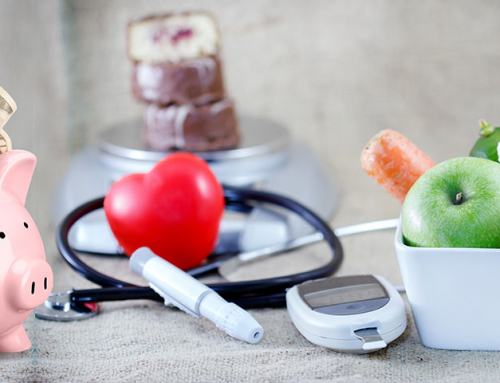Often times, people with diabetes focus so intently on monitoring their blood sugar that they forget to keep track of other important health indicators. Cholesterol is one of those things. Checking your levels is important for everyone, since too much can lead to heart disease. People with diabetes are already at risk for heart disease, so they should take extra care to monitor their numbers. Testing at least once a year is recommended.
What is Cholesterol?
Cholesterol is a waxy lipid that is found in foods like meat, eggs, and dairy products. A lipid (incorrectly thought of as a synonym for fat) is a substance that dissolves in fat. The body needs cholesterol to build cell walls and to produce things like hormones, vitamin D, and bile. But when excess cholesterol is in your bloodstream, it can cling to your arteries, making them harden and get narrower. This is called atherosclerosis, a serious condition that can lead to heart disease.
Cholesterol is carried through the blood by proteins. Together, the molecules form what is called a lipo-protein. There are two kinds of lipo-proteins:
- LDL, or low-density lipo-proteins. LDLs are often called “bad” cholesterol, as they are responsible for the hardening of the arteries. When reading your numbers, you want your LDL levels to be LOW. The target number for people with diabetes is a reading of less than 100.
- HDL, or high-density lipo-proteins. HDLs are know as “good” cholesterol because they do the opposite of LDLs: they help clean out the arteries and keep them from getting blocked. When reading your numbers, you want your HDL levels to be HIGH. For men with diabetes, the target number is more than 40. For women with diabetes, the number should be more than 50. Remember, keep the low, low, and the high, high!
A third substance which is usually monitored during testing is triglycerides, a fat found in vegetable oil and animal fats. High triglycerides increase your risk of heart attack and stroke, so you want your levels to be low. For people with diabetes, aim for numbers that are less than 150.
Your cholesterol levels can be affected by many factors such as smoking, alcohol, and certain illnesses. Some medications can hurt your cholesterol levels, too. These include beta-blockers (a blood-pressure drug), oral estrogens (birth control), and thiazide diuretics (another blood-pressure treatment). Check with your doctor to find out what you can do about optimizing your levels – your heart will thank you!






Leave A Comment